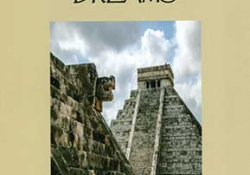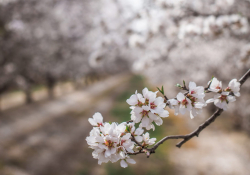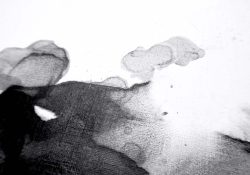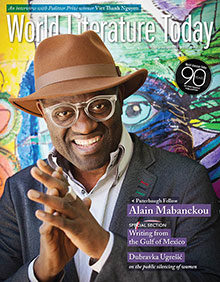Two Trilingual Poems

U k’a’ajsaj a tuukul
Kin k’áatiktuntimbáe’
Bix a máan a ta’ak a wich
tu bo’oy táanxel t’aanil
Ka’ a wa’al ma’atan a na’atik u t’aan Yum Iik’.
A yuume’
tu yu’ubaj a tsikbal
yéetel Yum Báalam Kalan Káakabo’ob
ka’alikil a wenel.
Tu memoria
Y entonces, me pregunto,
Cómo es posible que escondas tu rostro
A la sombra de otras lenguas
Y niegues entender el lenguaje del Viento.
Tu padre
Mientas dormías
Te escuchó hablar
con los Señores Guardianes de Tierras Fértiles.
Your Memory
And then, I ask myself,
How is it possible that you hide your face
in the shadow of other languages
and refuse to understand the language of the wind?
While you slept
your father
heard you talking
with the Guardian Lords of Fertile Lands.
Ko’olel yaan u sáasil
Ma’ bíin kíimkech mix bik’ini’
Xsáast’inkab ko’olel
Xmu’uk’a’an ko’olel
X ok’om óol paakat ko’olel
X yúukbanak pool ko’olel
Ko’olel a wíit’k’axmajabáa yéetel a bóoch’
Xma’ t’a’aj ko’olel
Ko’olel ku taal u la’abal a baakel
Ko’olel manchaja’an u paakat
Ko’olel u xmukulmaj u yok’ol
Ko’olel lamchaja’an u tuukul
Ko’olel ka náanach xíimbal
Xjuuch’il k’ab ko’olel
Ko’olel ku yaalintik waaj a xaamach
Ko’olel ka beetik ki’iwaaj yéetel mixba’al
Xtupul nuumyaj ko’olel
Ko’olel a mukmaj muk’yaj ta puksi’ik’al
X ixi’im ko’olel
Ko’olel k’i’itpaja’an a waal luumkabil
Ko’olel ka muklik u yaal a wich
X ixi’im ko’olel
X janalbe’en ko’olel
x-iits’ ko’olel
X its’at ko’olel
Ko’olel ka t’anik maaya
Ko’olel ka t’anik kastlan
Ko’olel ka’ap’éel a t’aan
Ko’olel ka na’atik
U nu’ukbesaj eek’o’ob
Ko’olel ka na’atik
U nu’ukbesaj yóok’ol kaab
Ko’olel nojba’al a miatsil
Ma’ bíin kíimkech mix bik’ini’
in lu’umile’ ku éets’nak’tik a kuxtal
Mujer de luz
No morirás por siempre
Mujer de luz
Mujer de poder
Mujer de mirada triste
Mujer de pisada descalza
Mujer de pelo ondulante
Mujer de rebozo ceñido
Mujer de cuerpo desnutrido
Mujer de huesos descalificados
Mujer del semblante ausente
Mujer de mirada profunda
Mujer de llanto callado
Mujer de pensamiento ausente
Mujer de largas travesías
Mujer de manos de masa
Mujer de comal que pare tortillas
Mujer que de la nada guisa un manjar
Mujer de apagadas congojas
Mujer de dolores sepultos en el corazón
Mujer hija del maíz
Mujer de hijos paridos en la hamaca
Mujer de hijos dispersos en la tierra
Mujer de miles de lágrimas contenidas
Mujer mazorca
Mujer alimento
Mujer savia
Mujer sabia
Mujer de habla maya
Mujer de habla castellana
Mujer bilingüe
Mujer que habla
lenguaje de estrellas
Mujer que habla
lenguaje de naturaleza
Mujer de grandes sabidurías
No morirás para siempre
Mi tierra, tiene el reflejo de tu vida.
Woman of Light
You will never die out completely
Woman of light
Woman of power
Woman with the sorrowful expression
Woman of barefoot steps
Woman of wavy hair
Woman of the tight rebozo
Woman of malnourished body
Woman of decaying bones
Woman of vacant look
Woman of profound look
Woman of silent weeping
Woman of absent thoughts
Woman of long journeys
Woman of hands of masa
Woman of the comal that gives birth to tortillas
Woman who can make a delicacy of almost nothing
Woman who is worn out with suffering
Woman of pain buried in the heart
Woman, daughter of corn
Woman who bore her children in a hammock
Woman of children scattered throughout the earth
Woman of thousands of unshed tears
Woman of corn
Woman of food
Woman of the sap of plants
Wise woman
Mayan-speaking Woman
Spanish-speaking Woman
Woman who speaks
The language of the stars
Woman who speaks the
Language of nature
Woman of great wisdom
You will never die out
My land is a reflection of your life.
Translations from the Yucatec Mayan
By Jonathan Harrington
Translator’s note: A rebozo is a scarf, masa is tortilla dough made from corn flour, and a comal is a pan for frying tortillas.












